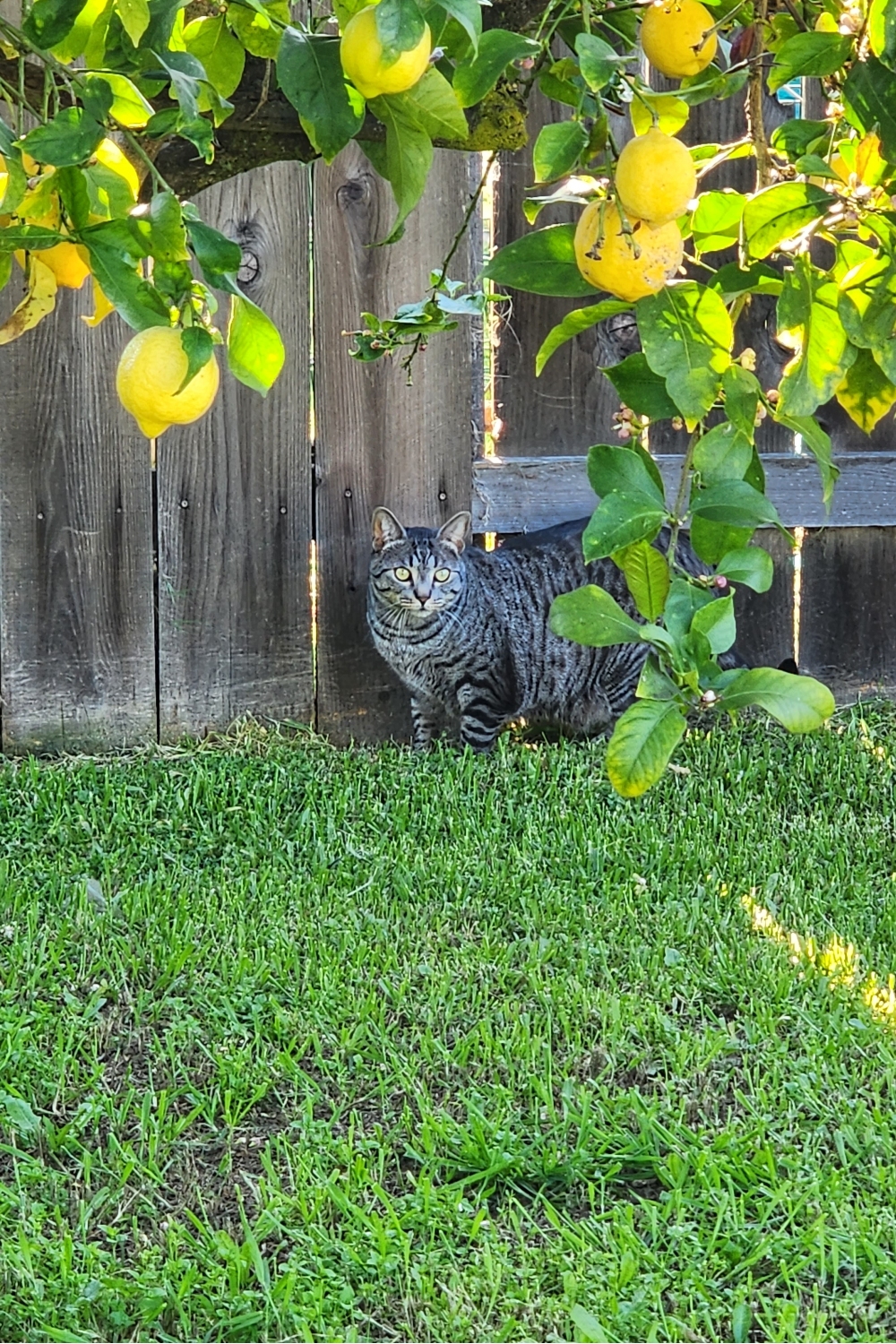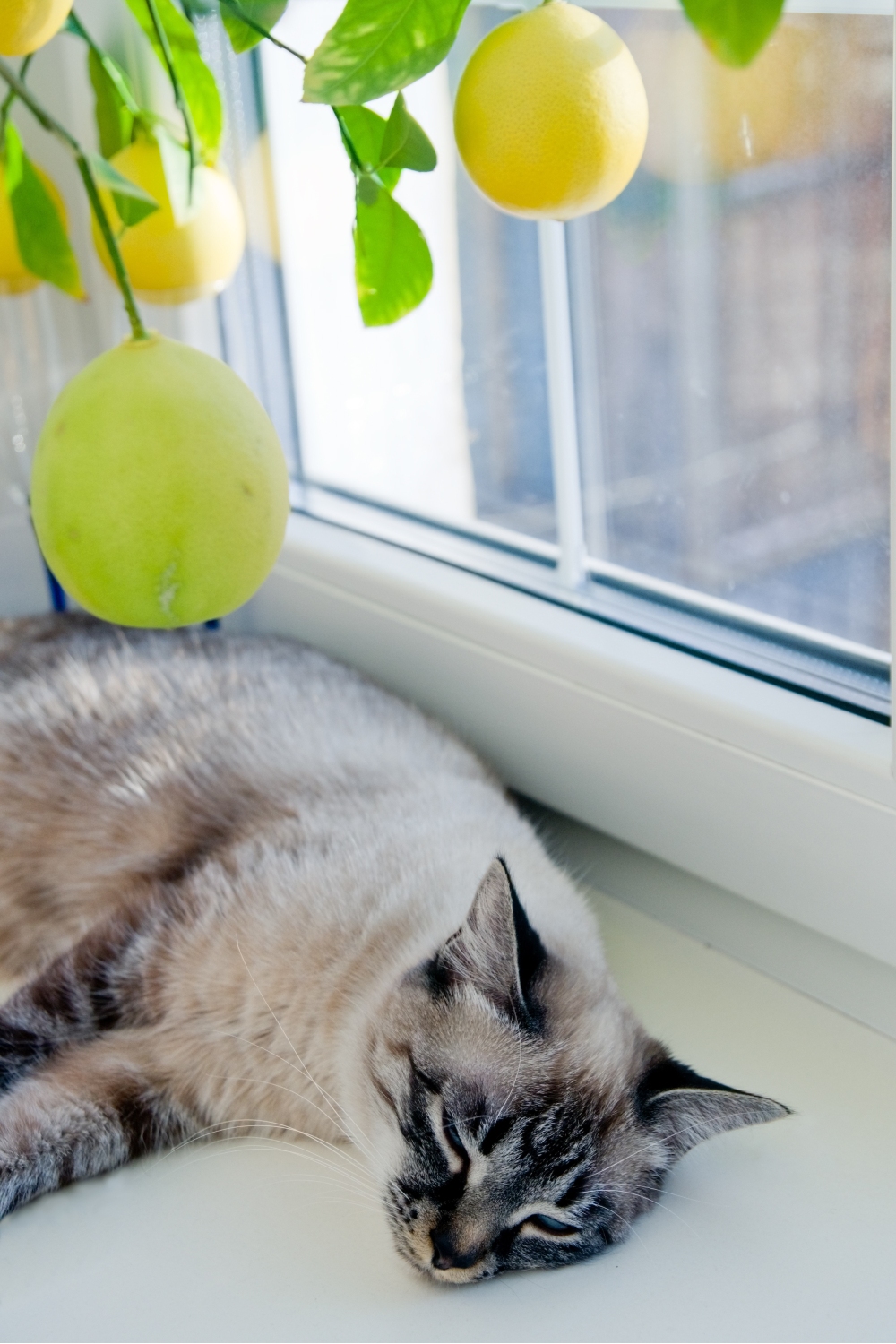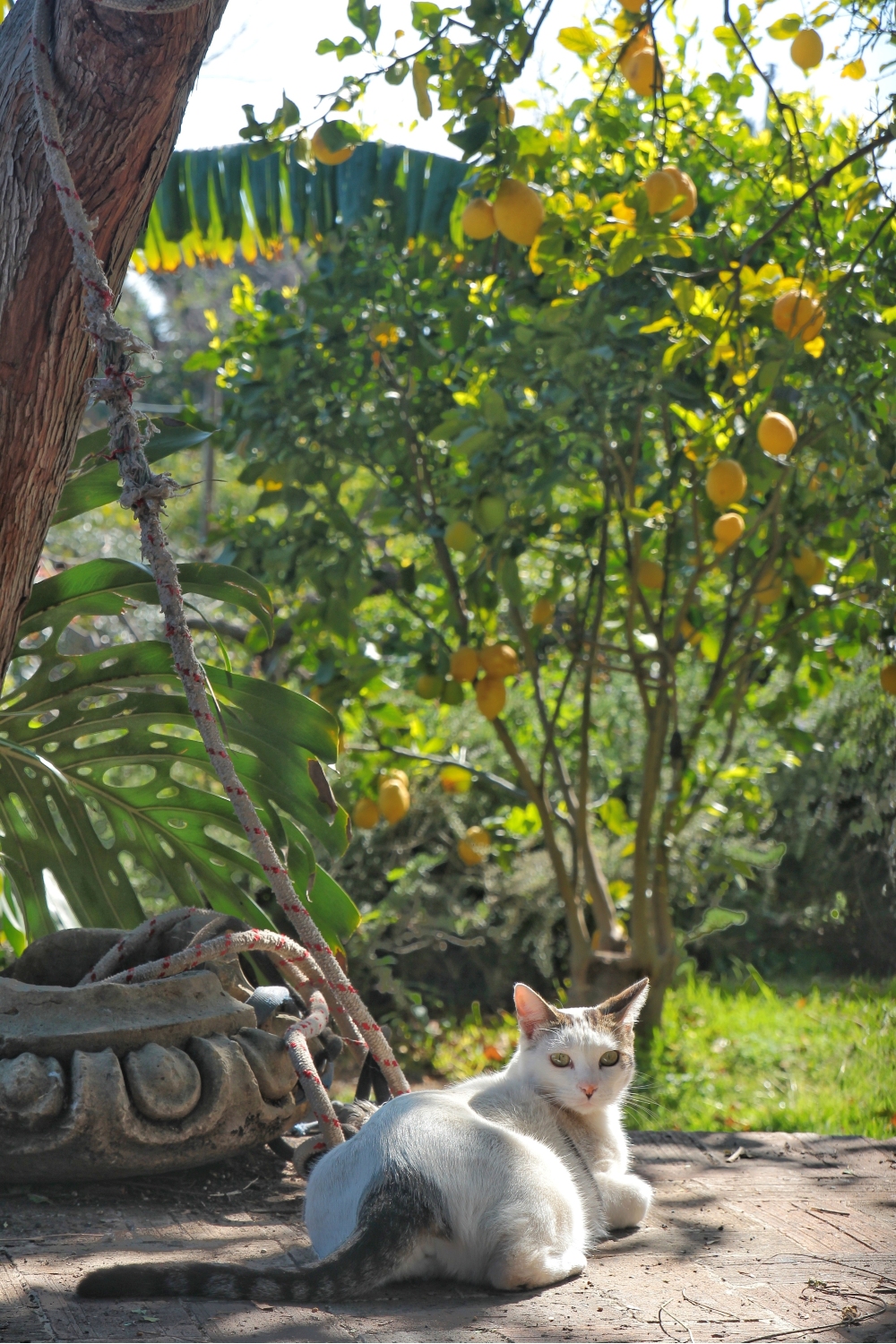I love to see a lemon tree in people’s houses or yards. It makes a great addition to any space, it smells just great, and it gives you so many opportunities to use lemons in your kitchen.
This is a miraculous fruit for humans. Some of its essential advantages are that it makes a good source of vitamin C, supports heart health, helps control weight, improves digestive health, and prevents kidney stones.
We can benefit in many ways from lemon, but, this doesn’t make it safe for our feline friends. Moreover, citrus fruits are dangerous for cats. But, what about trees? Are lemon trees toxic to cats?
Let’s find out the answer and see whether you should have it in your household, near your pet.
Can A Lemon Tree Present Danger Of Toxicity For Cats?

Fruits and vegetables offer numerous health benefits, and personally, I can't imagine a day without including them in my diet.
Still, cats are obligate carnivores, meaning that they don’t need these foods as a part of their regular diet. Moreover, citrus fruits like lemons are even toxic to cats and can lead to severe problems.
Minneopa Orchards explains that lemons contain linalool, psoralens, and limonene.
Linalool is a natural insecticide, while limonene is the key ingredient that makes lemon smell so good. Both of these can be harmful for felines, as well as psoralens.
According to Shaowei Wu and his associates [1], experiments on various animals showed a correlation between epidermal and serum concentrations of psoralens after oral administration, and the appearance of phototoxicity.
Not only is the lemon fruit toxic to cats, but so are its stems and leaves. While the amount of essential oils that are dangerous for cats is concentrated in the fruit for the most part, the roots and leaves are also toxic.
So, there are dangers of growing a lemon tree inside your home or in your garden, having a feline friend around.
Lemon Poisoning In Cats

Cats are naturally curious about everything in their surroundings. This usually leads them licking or sniffing on anything they find around them, potentially including plants.
Let’s see what lemon poisoning in cats looks like.
Symptoms
The symptoms can differ depending on the amount of lemon a cat has had.
By just digesting a small amount of lemon, a cat will manifest the following symptoms:
• Diarrhea
• Vomiting
• Stomach pain
• Lethargy
• Low blood pressure
• Skin irritation
• Tremors
• Cold limbs
A larger amount of lemon can lead to severe consequences, such as foaming at the mouth, organ failure, and even death.
While it isn’t very likely that a cat itself will eat such a large amount of lemon, you should never let it lick even a slice of this citrus.
Treatment

As soon as you notice your cat licking on lemon or any of the previously mentioned symptoms, you need to take it to the emergency vet.
Despite cats usually covering up their pain really well, this won’t be possible with lemon poisoning. Most likely, a cat will be too unwell to even try to hide its distress.
The most important thing here is to get to the vet on time, so that they can eliminate the toxins from a cat’s stomach by using the gastric lavage procedure. The goal here is to remove all the lemon and toxins from a cat’s digestive system.
The next step in treatment is for the cat to get activated charcoal. This stops toxic compounds from being absorbed into a cat’s bloodstream.
Afterwards, it’s necessary to give intravenous therapy to a cat, to compensate for the fluids it has lost by having severe poisoning symptoms.
Recovery
If a cat gets to a vet clinic and receives appropriate treatment on time, chances are good that it will recover perfectly.
Still, it’s necessary to understand just how severe this situation can be. Unfortunately, it’s possible that you won’t notice symptoms on time, or you will come home to find a sick cat.
This is why you should always observe your kitty, and make sure that there aren’t any toxic products around it.
Should You Grow A Lemon Tree While Having A Cat In Your Home?

Since both lemon and lemon tree are toxic to cats, it’s understandable that many cat parents will make a decision not to have them in their homes.
Still, don’t give up just yet! The good news here is that cats really dislike citruses like lemons, oranges, grapefruit, and lime.
Most cats will turn their heads away just by smelling these citrus fruits. Fruits like these can even function as repellers – this is just how much felines hate them!
Take a look at the video below to understand what cats think of lemons.
So, most likely, your cat won’t find a lemon tree in your home appealing. However, it may become curious and try to sniff it in the beginning.
After all, cats are curious and always looking for some adventure. Most of them will be repulsed just by this tree’s smell and won’t come near it.
Still, you should observe your cat and see its reaction to a lemon tree. Every cat is unique and you, as a cat parent, should be able to estimate whether something is safe or not to have around your feline friend.
Final Thoughts
Lemon tree is a wonderful tree to have in a home and has multiple benefits. However, sharing a home with a feline friend brings up the question: Are lemon trees toxic to cats?
Although most of the toxic components are in the fruit itself, the tree is also poisonous to cats. Still, it isn’t impossible to grow this tree while having a cat friend around.
It all comes down to being a responsible cat parent. You can try placing a lemon tree in an area that isn’t so accessible to your kitty.
The most important thing is to supervise the interaction of your cat with the tree, especially in the beginning.
The good thing here is that cats dislike the lemon smell and are likely to avoid the tree in the house.
What you can do is provide your cat with enough entertainment and activities. This way, you will decrease the chances of it wanting to try something new and sniffing on plants in your home.
References:
[1] Wu S, Han J, Feskanich D, Cho E, Stampfer MJ, Willett WC, Qureshi AA. Citrus Consumption and Risk of Cutaneous Malignant Melanoma. J Clin Oncol. 2015 Aug 10;33(23):2500-8. DOI, Retrieved January 11, 2024.




